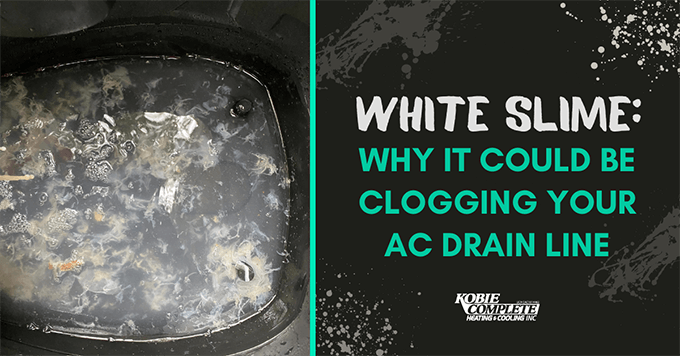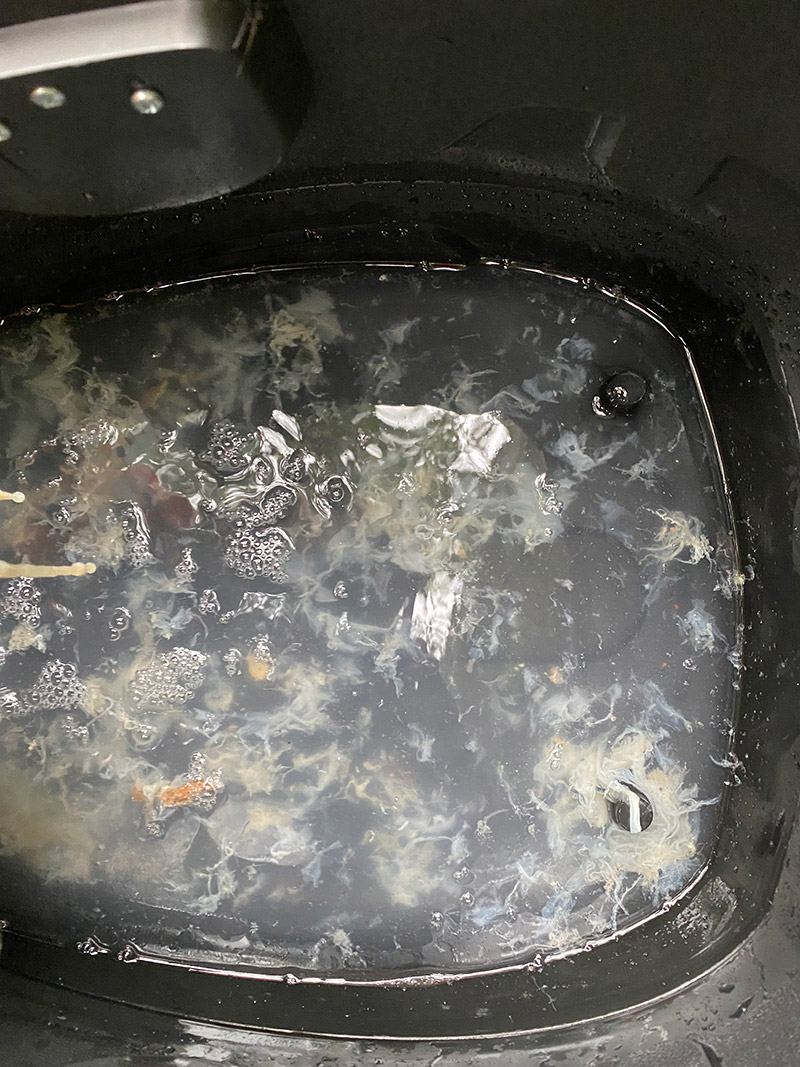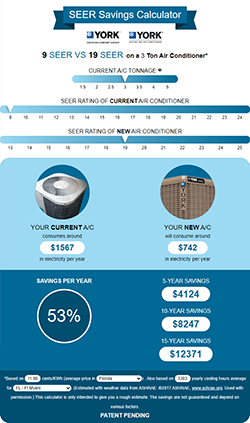
If your air conditioner has recurring drain line issues, chances are the cause is white slime. White slime buildup has become a common problem plaguing HVAC systems in recent years. This gelatinous substance lurks in air handlers, clogs drain lines, and causes AC malfunctions. It occurs most often in Florida and other southern US states during the summer, when AC usage is at its peak. In this post, we’ll talk about how to treat white slime and prevent it from causing costly damage to your home.
What is white slime, and where does it come from?
Before you call an exorcist, relax, we’re not talking about anything paranormal. The pale, gooey substance is not an invader from the unknown. Rather, it’s bio-film or organic matter. Studies have shown that white slime is not algae, and only a small percentage of it is made up of fungi. Actually, the colorless gunk forms around a colony of bacteria, protecting it as it grows. But why would bacteria grow like this in your air handler?
Part of the reason is the way your air conditioner regulates humidity. The dehumidification process happens within the air handler (your AC’s indoor unit). Air blows across the evaporator coil, where moisture condenses and drips into a drain pan. From there, the moisture travels outside your home via a pipe called a drain line. Because bacteria thrive in dark, damp environments, your AC’s drain pan is a prime incubator. Also, dust and dirt that accumulate on the coil provide ample food for the microorganisms to feast on.
For reasons yet unknown, white slime affects some HVAC systems and not others. There does not seem to be a verifiable link between specific products or system configurations. The only known influencing factors are environmental.

What problems can white slime cause?
Aside from its revolting appearance, the white slime is not harmful—at first. However, if left unchecked, the slime can cause a blockage in your air conditioner’s drain line. A clogged drain line prevents the moisture in the drain pan from leaving your home. Instead, it accumulates and eventually overflows.
Some AC systems will shut down automatically before the drain pan spills over. So, you may notice that your AC stops cooling, and your thermostat may display an error message. In other systems, there may be no warning. The overflowing drain pan will cause water damage which can lead to mold growth. Standing water near your AC unit, or a musty smell coming from your vents, may be your first signal that something is wrong.
How can you solve the problem?
Of course, you want to prevent white slime from forming in the first place. But if you already have a slime problem, your AC is going to need a thorough cleaning.
If your drain line is clogged:
- Call your HVAC technician. At Kobie Complete, our service technicians have the training and equipment to deal with white slime.
- When the technician comes to your home, they will first remove water and sludge from the drain pan and inspect the drain line. Then they will likely attach a wet/dry vac to the outdoor drain line opening and suck everything out of the pipe.
- After clearing out the clog, it’s important to kill any remaining bacteria. Your technician will clean the drain pan and drain line with an appropriate cleaning solution.
To prevent white slime from building up:
- The first line or defense against white slime is keeping up with routine air conditioning maintenance. An annual (or semiannual) air conditioner tune-up usually includes a drain line inspection. In systems with a recurring white slime issue, more frequent maintenance may be necessary.
- Change your AC filter regularly. When your filter is clogged, the unfiltered dust and dirt collect on the coil and become food for bacteria.
- Ask your HVAC technician for tips on how to keep the drain line clean between routine maintenance visits. They may suggest pouring a solution of bleach diluted 50/50 with water into the drain line, followed by flushing the line with water. Generally, using bleach in an AC drain line is discouraged, but depending on the severity of the slime issue your technician may deem it necessary.
Are you dealing with white slime or another drain line issue? Call Kobie Complete today: (941) 474-3691
We offer preventative AC maintenance, including convenient and affordable plans. If your AC is not running, we offer 24/7 emergency air conditioning repair service – never an overtime charge.
Additionally, if you are in the market for a new air conditioner, feel free to ask us for a free, no obligation quote. We also give second opinions on other company’s quotes.
Our service area encompasses Sarasota and Charlotte counties in Southwest Florida. From our two locations in Englewood and Punta Gorda, we serve the surrounding communities including Venice, North Port, Port Charlotte and Sarasota.
Sources:
Harris, Angela. “White Slime Is No Match for an Educated HVAC Technician”, ACHR The NEWS, July 15, 2019, https://www.achrnews.com/articles/141579-white-slime-is-no-match-for-an-educated-hvac-technician. Accessed July 21, 2021.
“How to Fix a Clogged AC Drain Line”, Carrier, https://www.carrier.com/residential/en/us/products/air-conditioners/air-conditioner-maintenance/clogged-ac-drain-line/. Accessed July 21, 2021.










